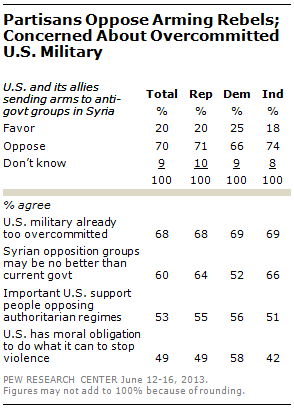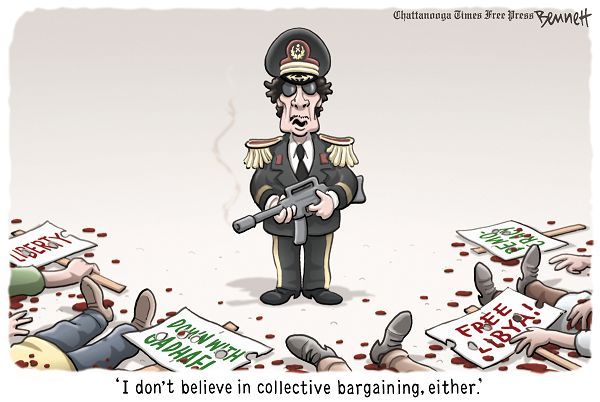CNN host of GPS and editor of Newsweek International, Fareed Zacharia made this video before Pres. Barack Obama decided to send arms directly to the Al Qaeda backed rebels in Syria.
Oh Thank God–Finally, War With Syria
by Russ Baker,
Now, the Obama administration is preparing for war, in an astonishing echo of the George W. Bush administration’s misleading justifications for invading Iraq. [..]
No one is likely to demand good hard evidence for the use of chemical weapons. After all, the Bush administration and its lies for war was so…very long ago. [..]
None of these military adventures were ever about anything remotely honorable. So, whether you are a Democrat or a Republican, you just have to get over it. You may feel better believing the system of which you are part has noble intentions, or that the party you prefer is somehow more principled.
The truth is actually pretty simple: no matter which party is running things, globally dominant governments do not make decisions based on humane do-goodism. In the halls of power, decisions are based on a consensus of hard-headed “realists,” whose concerns do not extend to human rights, the safety of women and children and other civilians, or the “self-determination” of non-Americans. “Spreading democracy around world”? Um, no.
This entry into a new Middle East conflict isn’t going over very well with the American public. Only 20 percent support this action, while 70 percent oppose it. Opposing to arming the rebel is strong across party lines, as Jon Walker at FDL Action shows with this graph from Pew:

Click on image to enlarge
At FDL News Desk, DSWRight makes some very salient points that this is not Rwanda and not how you get people to the table:
This is not Darfur or as Bill Clinton may infer Rwanda. This is a sectarian civil war where the Sunni majority is taking on a Shiite aligned government as part of a larger factional struggle in the region. [..]
In what world is that a way to launch peace talks? America is not neutral (and to be fair never has been) but starting off negotiations by claiming one of the parties at the talks must leave power is not going to advance the ball very far.
Getting in the middle of a regional conflict like Syria may even be dumber than Iraq, which is really saying something. And what if the rebels win? Then Al-Qaeda and friends come to power. After they are done massacring the losers and sectarian minorities they can help launch attacks against America. The Syrian intervention is all kinds of stupid.
This is not going to go well. Should anyone be surprised that Pres Obama’s approval rating is dropping?


Recent Comments